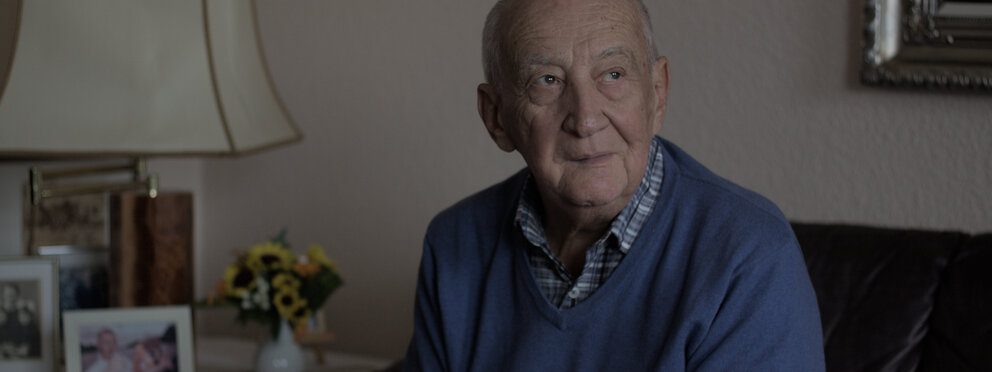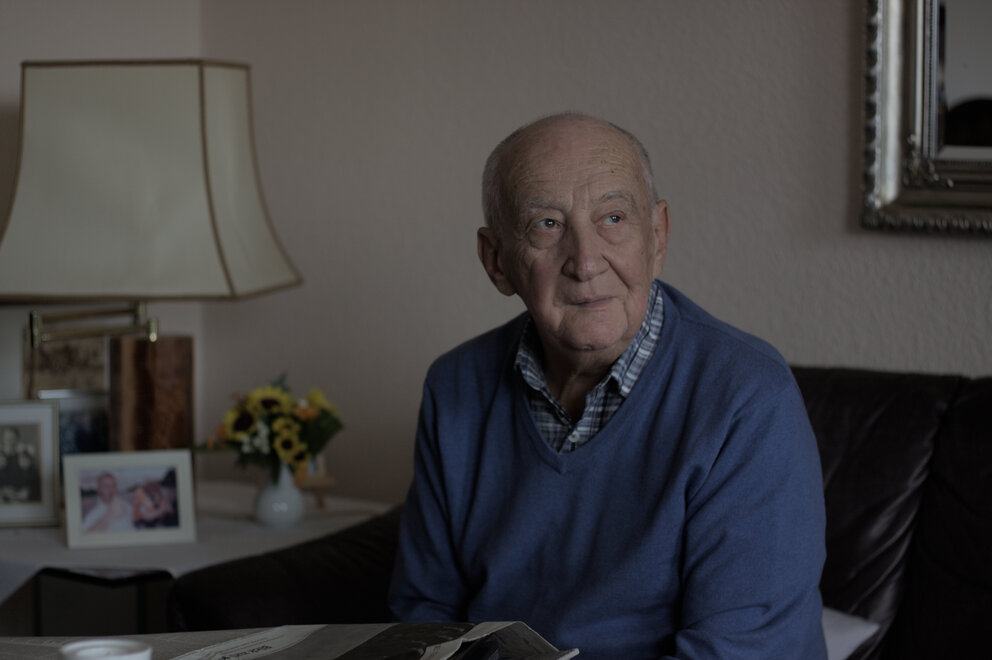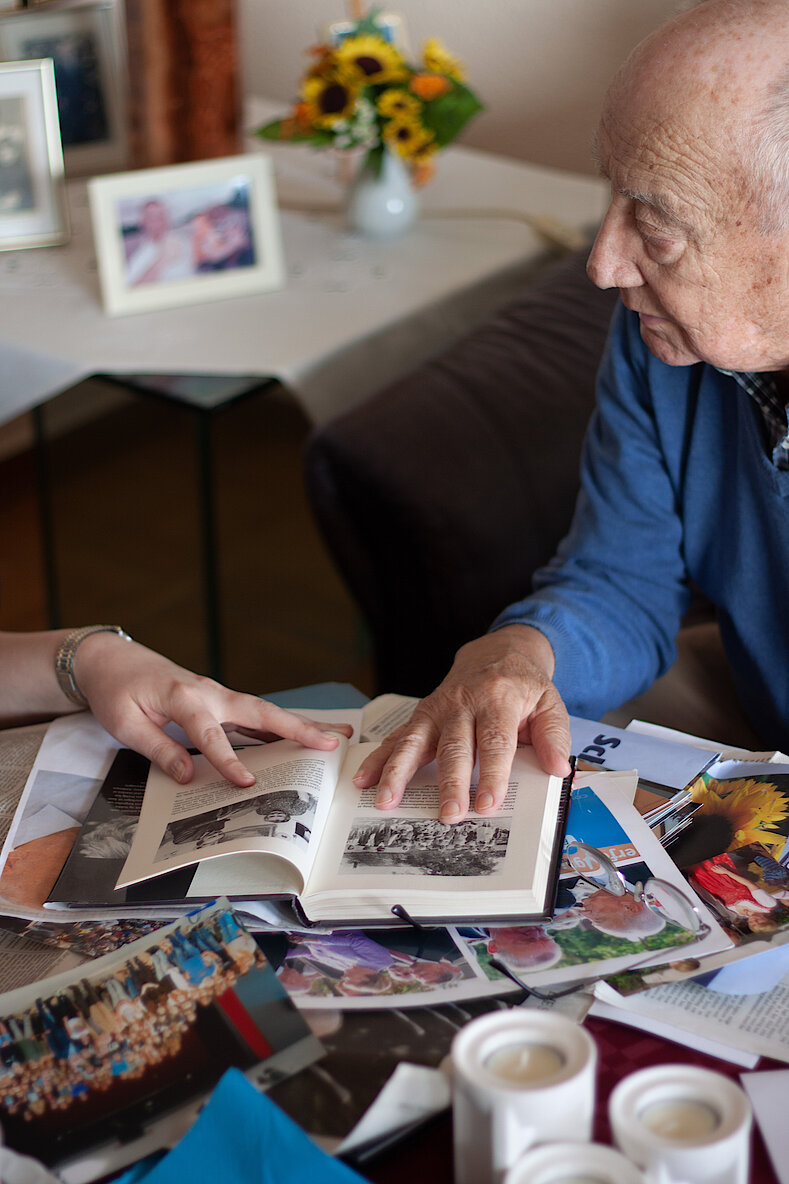
Leslie Schwartz
About Leslie Schwartz
Born Laszlo Schwartz in Hungary on 12 January 1930, he lost his father at the age of eight. Although his mother remarried, Leslie was never able to get over the loss of his father. From 1940, he was no longer able to go to school, as Jewish schools had been closed. As a Jew, he was forced to go to a Catholic school.
When the Wehrmacht occupied Hungary in 1944, Leslie, his parents and his two sisters were arrested in their home town of Baktalórántháza and taken to the Kisvarda ghetto. Just one month later, they were deported to Auschwitz-Birkenau. Leslie saw his mother and sisters for the last time on the ramp of the concentration camp. For him, months of forced labour followed in Auschwitz-Birkenau, in Dachau, in the Allach subcamp of the Karlsfeld camp and in Mühldorf an der Inn.
During his stay in a displaced persons camp, he received a letter from his uncle in America. Nothing kept Leslie Schwartz in Germany or Europe, as his entire family had been murdered. So he emigrated and started a new life. He married, had a son and eventually owned his own print shop. But nobody wanted to hear his story. Nobody wanted to listen to him and deal with it. So Leslie Schwartz remained silent for a very long time. Until his friend Max Mannheimer, whom he had met in the concentration camp, kept encouraging him to tell his story. Until his death on 12 May 2020, he gave lectures in Germany and the USA, spoke to eyewitnesses and visited schools.
"[The] most important thing was [...] I have to survive this and tell my story."

A picture to live on
A table full of documents, books, photos, newspaper articles and a Federal Cross of Merit. What looked like chaos to us were memories of his life after the war for Leslie Schwartz. He found his way back into life by telling his life story in schools. The feedback and love he received back from the students helped him heal. When he showed us his full table, he was very proud and enjoyed the attention.

Our encounter
When the day finally came for us to meet in person, I was incredibly eager and excited. I was not at all disappointed: Leslie and his wife greeted me as if we had known each other for a long time. They had invited four other volunteers from ZWEITZEUGEN e.V. and me to their home. For me, it was a bit like being at my grandparents' house for coffee and cake.
Leslie talked about his time in the USA, showed newspaper cuttings about him and photos of his famous relatives. He seemed particularly proud of his meeting with Angela Merkel, when he was awarded the Order of Merit of the Federal Republic of Germany. I noticed how much he enjoyed being bombarded with questions and being the centre of attention. The fact that he always attracts attention is no surprise to me, as Leslie quickly had us all wrapped around his little finger with his charismatic and charming manner. Beaming with joy, he told me about the students who hugged him and wanted to take photos with him. He said that the love that the pupils showed him was the means of healing for him. Healing from the horrors of the Shoah that he experienced. I will never forget how he told me about the last time he saw his mother and sister: on the ramp in Auschwitz-Birkenau. For me, the story was almost unbearable.
Leslie Schwartz was a person of incredible strength, courage and will to live, that he endured all this and shared it with so many people over and over again. Shortly after the interview, I met him with pupils: he immediately captivated them too and patiently answered every question, no matter how personal.
I hope that I will be able to tell many more students about this great and courageous man and his unique story of survival in the future!
Author: "Zweitzeugin" Vanessa Eisenhardt
